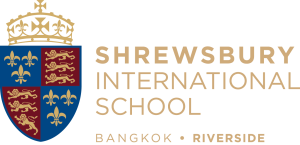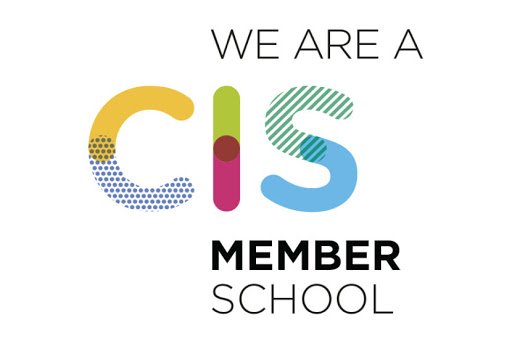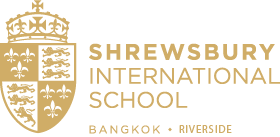FAQs
This section provides answers to some of the most frequent questions that we receive from prospective families. Our current families should refer in the first instance to the information provided within the Parent Handbook.
Under normal circumstances, parents are usually informed as to whether the application meets the criteria, the student will be invited for assessment and an offer of place is to be made within 3 weeks of application. Different application timelines may apply to certain year groups.
(Please note that we will not assess applicants any earlier than 12 months prior intended enrolment date, and they will not be offered a place until the school is satisfied that all entry criteria, including successful assessment, have been met. Should a family wish to apply significantly in advance of the intended enrolment date, they should therefore expect a significant delay before any further action is taken with regards to assessment and decision)
Where applications are made from overseas, provision can be made
for the assessment tests to be taken in the current School and
invigilated under examination conditions if necessary. This can
be organised by arrangement between the appropriate School
Senior Managers and Admissions departments.
- EY1: Observation and interview with EY1 Leader / class teacher in company of parents (1 hour approx.)
- EY2: One-to-one child assessment and discussion with parents (30 minutes approx.)
- Y1-2: One-to-one child assessment of reading, phonics, numeracy and written English (30 minutes approx.)
- Y3-6: Written aptitude, Maths and English tests. Specialist assessment for children whose 1st language is not English
- Y7-11: Interview with Vice / Assistant Principal. Written aptitude, Maths and English tests. Specialist assessment for children whose 1st language is not English. Thai language tests (reading and writing) for Thai Nationals
- Y12-13: Interview with Vice / Assistant Principal. Review of formal evidence of public examination performance. Testing in subject specific areas as necessary.
Where an applicant meets the entry criteria but there are no spaces available, the applicant will be placed on a waiting list. Parents will be contacted as soon as a place becomes available in the appropriate year group. Depending on the time elapsed since the last successful assessment, a further assessment may be required at that time to ascertain the child’s current progress; in these cases, the second assessment will be offered free of charge.
Whilst every effort will be made to accommodate siblings, entry to Shrewsbury International School is by academic selection and place availability assessed on a case-by-case basis.
If during the course of gathering information, testing and / or interviews it is suggested that the applicant may have any special educational needs, then an assessment will be made by the Principal with advice taken from the Vice Principals and Special Educational Needs Staff as to the progression of the application. The SEN policy will be made available to parents and options discussed.
During the course of the internal admissions process, it may become apparent that further assessment by the school’s Special Educational Needs team or a professionally qualified Educational Psychologist (at cost to parents) is warranted. The school can help with the arrangements and the information provided will be taken into account in the final decision.
Other details regarding Shrewsbury Riverside's general provisions for learning support can be found HERE.
The teachers at Shrewsbury International School pride themselves on the care they give to students and the partnership they form with parents to allow children to be happy as well as successful. In both academic development and pastoral care, we insist on the highest standards and ensure that they are adhered to through our rigorous appraisal system. Our student / teacher ratios are key in supporting these goals at every level in the school. At Riverside
Overall
The overall student / teacher ratio in the school is 10:1 with, on average, teachers enjoying contact with students for 47 of the 60 periods in each 10-day cycle. Each period lasts for 55 minutes from Years 3 to 13.
Early Years
In each EY1 class there are normally 15 to 17 students. In each EY1 class there is one full-time, fully-qualified teacher with specific Early Years qualifications and experience in teaching the Early Years Framework Strategy. The teacher is supported by at least two fully trained classroom assistants.
In each EY2 class there are normally between 15 and 18 children. In each EY2 class the children are supported by one full-time, fully-qualified teacher with specific Early Years qualifications and experience in teaching the Early Years Framework Strategy and two teacher assistants.
Years 1 – 2 (Key Stage 1)
In each Key Stage 1 class, there are normally between
18 and 22 students. In each Key Stage 1 class children are
supported by one full-time, fully-qualified teacher with
specific primary school teaching qualifications and experience
and knowledge of the English National Curriculum. Each class has
a trained teaching
assistant who supports children in all curriculum areas
including English as an Additional Language (EAL), Guided
Reading and Phonics.
In Pre-Prep there is also a team of specialist teachers for Swimming, PE, Music, and Thai Language and Culture. In addition there are Teaching Assistants who have specific training in English as an Additional Language (EAL), Literacy and Early Years provision.
Years 3 – 6 (Key Stage 2)
In Year 3 to Year 6 class sizes are normally 20 to 24. In Year 3 to Year 6 children are supported by one full-time, fully-qualified teacher with specific primary school teaching qualifications and experience and knowledge of the English National Curriculum. Each class has a trained teaching assistant who supports children in all curriculum areas including English as an
Additional Language (EAL), Guided Reading and Phonics.
There is a team of
specialist teachers who for ICT, Swimming, Modern Foreign
Languages, Design
Technology, PE, Music, Drama and Thai.
Years 7 – 9 (Key Stage 3)
In Key Stage 3, students move into the departmental system of the Senior School, with each subject being taught by specialist teachers. Students study 15 subjects each in a programme which provides breadth in learning experience and opportunity, balanced with a rich co-curricular offering. The average class size across the Key Stage is normally between 22 and 25 students per class.
Years 10 – 11 (Key Stage 4)
In Key Stage 4, students study 10 or 11 core and optional subjects each working towards their IGCSE and GCSE public examinations with Cambridge International Examinations (CIE) and Edexcel at the end of Year 11. The average class size is normally around 20 students. In many subjects, the number of students per class is even more favourable.
Years 12 – 13 – The Sixth Form (Key Stage 5)
Students study 3 or 4 subjects for their A Levels with an average class size of 10. Tutor Groups are kept to approximately 12 students per form but to ensure that high quality mentoring and higher education careers advice is guaranteed a highly experienced specialist team work alongside the tutors.
Working across the Senior School are 2 Design Technology assistants, 2 Art technicians, 3 Science technicians and a team of secretarial and curriculum support staff.
Notes:
Special Educational Needs support may be provided for children with specific needs with the costs borne by the parents.
The class sizes provided above are indicative, depending on enrollment.
The majority of lessons are taught in mixed ability classes. There are particular subjects where current ability and previous experiences will be taken into account.
Yes. We offer a School Bus service to certain parts of the city. The School Bus service is available for students starting in Year 1 to Year 13. Early Years Students must be dropped off and picked up from school by an adult.
Students also have access to a free shuttle boat service operated by the Chatrium Hotel from Saphan Taksin pier, providing a connection with the BTS skytrain.
For more information on the above services, please visit the student transport page.
We have different school uniforms for different age ranges, which is available from the school shop. The school uniform is compulsory for all students. There are also guidelines and uniforms for different sports and formal wear for different activities and occasions. Students are expected to wear their uniforms neatly and with pride.
Full details are provided in the parent handbook.
We provide your child with all their meal requirements during the day. For the safety of children who have serious allergies (e.g. to dairy, wheat or nuts) we do not allow any food to be brought into school from home. Our school is a nut free environment.
Your class teacher will manage any special dietary requirements based on the information disclosed on the medical form.
Even if your child is a fussy eater, usually in a school environment this is not as big a problem as it is at home and all staff are well trained in ensuring children get a balanced healthy meal.
The current 10 day lunch and snack menu is always available to view on the Parent Portal.
The lunch menu has been formulated to ensure:
- Each child is provided with a balanced nutritious meal. This means each lunch always comprises vegetables, carbohydrate and protein components
- Food is chosen bearing in mind the sort that children like to eat
- Children with individual dietary requirements (e.g. Halal, vegetarian, Jain) are catered for
The food is child-friendly i.e. bite-sized, colourful and tasty, whilst avoiding artificial preservatives, colouring, flavour enhancers and a high saturated fat content.
All lunches are cooked on-site and fresh on the day. Class teachers and assistants place emphasis upon encouraging each of their children to eat well and to enjoy mealtimes with one another.
There are four lunch choices every day. Fruit is served as a dessert everyday and on Fridays there is ice cream.
On birthdays, please liaise with the class teacher if you would like to bring in a cake or pizza for your child. Please do not hand over food or eat snacks in the garden areas of the school.
Food committee
The School’s Food Committee consists of parents, academic and non-academic staff, and the caterer. The committee’s aims include reviewing the School’s provision for quality and appropriateness and recommending improvements. The committee welcomes suggestions and comments which parents and students can email to foodcommittee@shrewsbury.ac.th
The School has implemented a school-wide healthy eating policy in liaison with the Food Committee. The menu is posted weekly onto the Parent Portal.
Home learning refers to work or activities which students are asked to do outside lesson time either on their own or with parents/carers.
A well-organised, regular programme of home-learning helps to develop an understanding of lifelong learning as well as reinforcing learning in the classroom. Home learning helps to develop a spirit of enquiry, curiosity and investigation in students. At Shrewsbury International School, home learning is designed to extend the challenges open to students and to complement – and not impede – a full programme of extra-curricular opportunities (such as You-Time, Sports, Music, Drama Excellence).
The School’s general approach to home learning is described HERE
The following guidelines articulate the school’s broad expectations about the amount of time students might reasonably be expected to spend on home learning and provide a useful framework for parents. However, the precise amount of time spent on home learning is much less important than the quality of the tasks set and the way in which they are planned to support learning.
| Year Group | Time Allocation | Home Learning Activity |
|---|---|---|
| 1 to 2 | 1 hour per week | Daily reading, Spellings and an optional Topic Homework Grid |
| 3 to 6 | 2 hours per week | Daily reading, Spellings and an optional Topic Homework Grid, MfL and Thai |
| 7 to 9 | 60-90 minutes per day | Allocated by subject in accordance with the home learning timetable published at the start of each academic year and to include reading for pleasure. |
| 10 to 11 | 2 hours per day | Dependent upon the demands of IGCSE subjects and to include wider reading |
| 12 to 13 | Variable | Dependent upon the demands of A Levels and to include wider reading and university entrance preparation |
To play sound, hover over / tap video and click speaker icon
HIGH QUALITY LEARNING AT SHREWSBURY
Click the links to watch the videos










